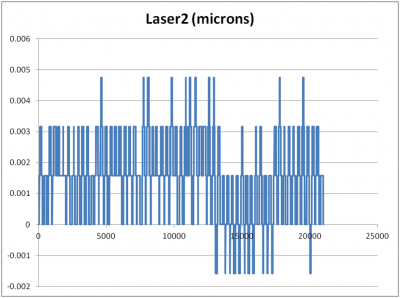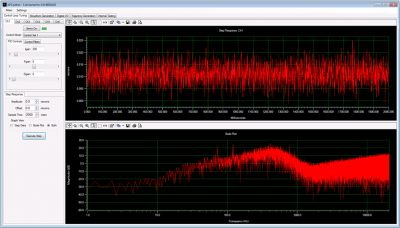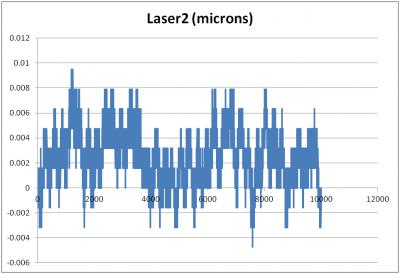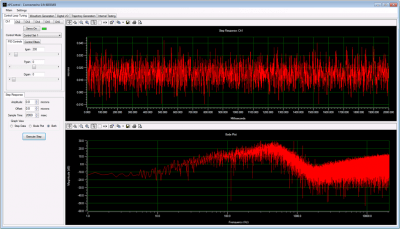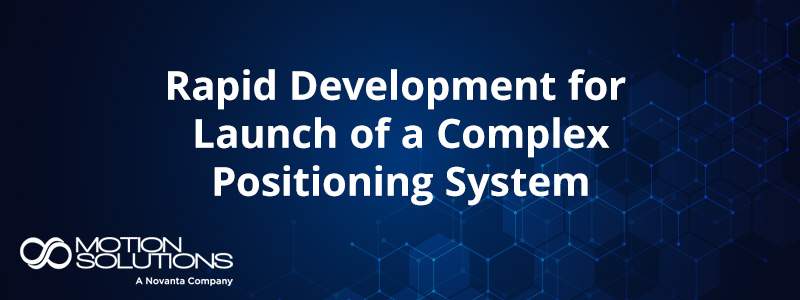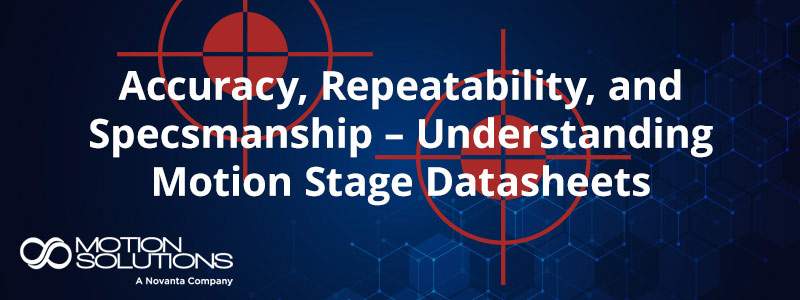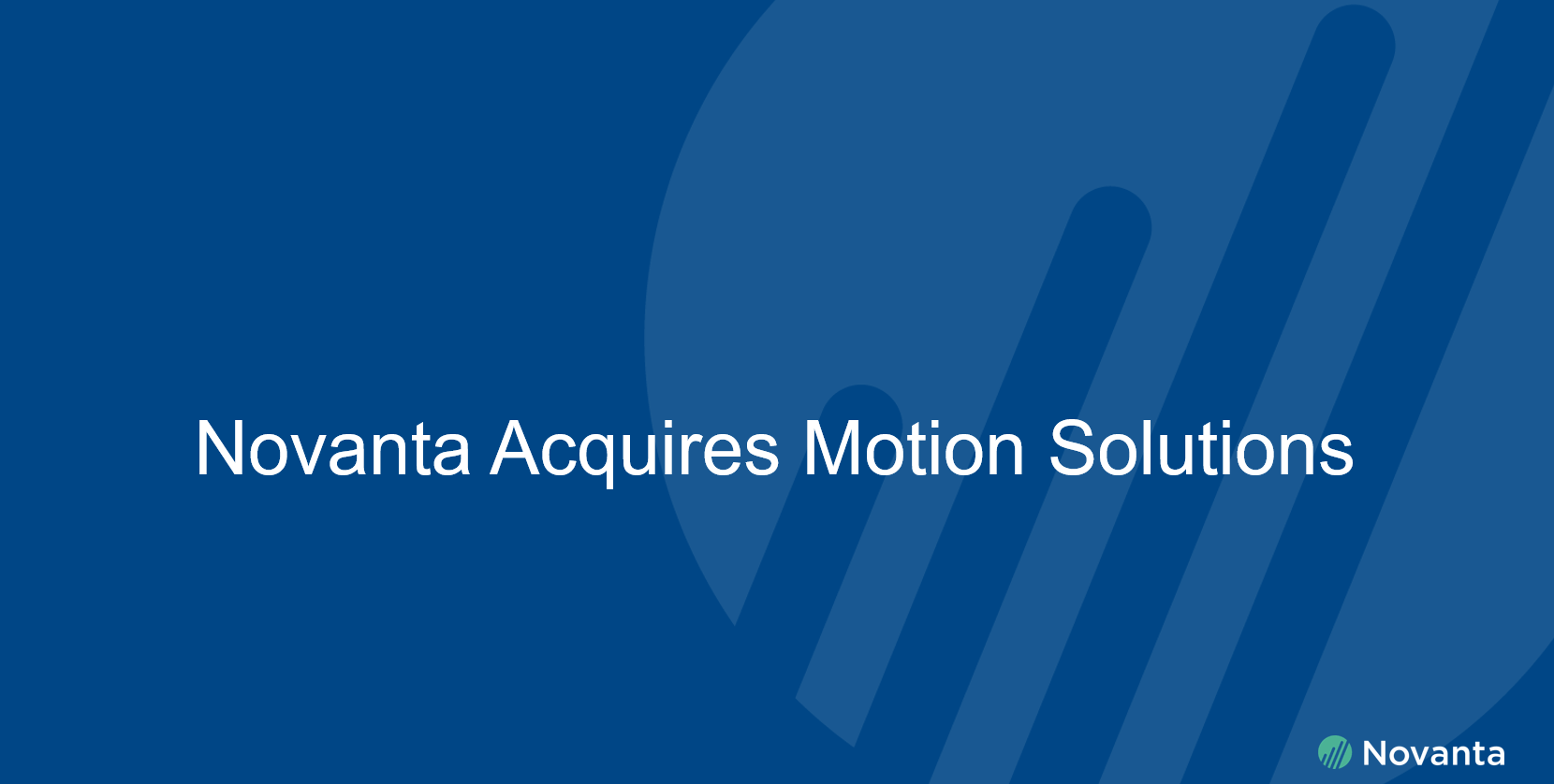A position sensor is necessary to provide closed-loop control for the nanopositioning system. There are different types of sensors that can be used to provide the measuring feedback to eliminate inherent issues with piezos such as non-linearity and hysteresis. Three common types of sensors include capacitive, strain gauge, and LVDT. Each has advantages for certain applications. Capacitive sensors provide the highest accuracy and linearity. Strain gauges are often used in lower cost applications where resolution may not be as critical. The following describes the differences in resolution between capacitive and strain gauge sensors on an nPFocus400 piezo stage.
Capacitive Sensor
- The RMS position noise (resolution), as measured during calibration, is approximately 1nm. This measurement is a measurement on the HV output to the piezo.
- The peak-to-peak position noise, as recorded by the interferometer, is less than 6nm. This is shown in Figure 1. Our interferometer resolution is about 1.5nm.
- The peak-to-peak sensor noise, as displayed in the nPoint GUI during a 0 step-response, is approximately 15nm. This is shown in Figure 2. Please note that the sensor bandwidth is much higher than the closed-loop system bandwidth. For this reason the actual RMS noise is taken from the high voltage output of the piezo providing the actual noise of the nanopositioning system.
Note: Please Click on Images Below for a More Detailed View
Strain Gage Sensor
- The RMS position noise (resolution), as measured during calibration, is approximately 4nm. This measurement is a measurement on the HV output to the piezo.
- The peak-to-peak position noise, as recorded by the interferometer, is approximately 12nm. This is shown in Figure 3. Our interferometer resolution is about 1.5nm.
- The peak-to-peak sensor noise, as displayed in the nPoint GUI during a 0 step-response, is approximately 40nm. This is shown in Figure 4.
Conclusion
Some applications require fine accuracy and precision provided by capacitive sensors, while others require the resolution of a strain gauge sensor. In this case the nPFocus400 has a resolution of 1nm with capacitive sensors and 4nm with strain gauges.


